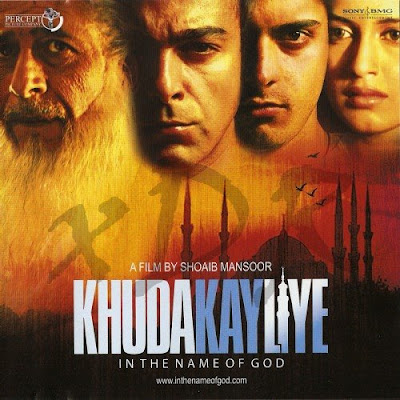Timeline of Health-Care Reform in America from the Wall Street Journal
http://online.wsj.com/public/resources/documents/HEALTHTIMELINE0907.html

Timeline of Health-Care Reform in America from the Wall Street Journal
http://online.wsj.com/public/resources/documents/HEALTHTIMELINE0907.html
How some of the major spending in the stimulus legislation will be shared among the states
http://online.wsj.com/public/resources/documents/info-STIMULUS0903.html
Paul Graham (Noted Y-Combinator venture capitalist, programmer, etc.) argues that we have never paid for “content”, rather, we have always paid for “medium.” Publishers, he says, are literally in the business of selling paper.
In fact consumers never really were paying for content, and publishers weren’t really selling it either. If the content was what they were selling, why has the price of books or music or movies always depended mostly on the format? Why didn’t better content cost more? [1]
A copy of Time costs $5 for 58 pages, or 8.6 cents a page.The Economist costs $7 for 86 pages, or 8.1 cents a page. Better journalism is actually slightly cheaper.
Link (via BoingBoing, via /.)
Google Books + On demand printing and binding = a radical revision of how production and distribution of books works?
[kml_flashembed movie=”http://www.youtube.com/v/zyNSap5XSv0″ width=”425″ height=”344″ allowfullscreen=”true” fvars=”fs=1″ /]
Google, with its mission “to organize the world’s information and make it universally accessible and useful,” plans to turn itself into the biggest bookstore the world has ever known, and to make libraries pay for acting as its agents. It’s troubling that the libraries that already have the richest collections will also be the ones that can offer their users the full Google service. Harvard was one of Google’s original partners. But Robert Darnton, Harvard’s librarian and a fan and creator of digital projects, has ceased supplying books still in copyright to Google. As he has written, “To digitize collections and sell the product in ways that fail to guarantee wide access … would turn the Internet into an instrument for privatizing knowledge that belongs in the public sphere.” Other Google partner libraries, however, support the settlement and have criticized Darnton’s decision.
From Cnet:
Whether downloading a song from the Web should be considered a performance is much contested. So far, the courts have sided with digital media companies.
In 2005, ASCAP entered into a rate-court proceeding to set licensing fees for the music services of Yahoo, AOL, and RealNetworks. A U.S. district judge for the Southern District of New York delivered a blow to composers and songwriters by ruling that downloading music from a Web store was not a music performance. On the other hand, the judge found that streaming music was subject to a performance fee.
“The songwriter gets a performance fee if the song is streamed without the video,” Carnes noted. “But if it is downloaded within an audio-visual work like a movie we don’t get a performance fee–same song, no money.”
Reeder Street Fellows Fall 2009 Discussion Series:
Digital Media, Rights Management and the Future of Free.
Tuesday September 22, 2009
In a world where the reproduction, modification and distribution of digital information becomes easier almost daily, there are a host of unanswered questions. How does copyright apply in the digital realm? How should it be enforced? Who should enjoy what rights, and who has responsibilities? Who will pay for the creation of content if it is expected to be free? What constitutes fair use? Are newspapers dying? Should they be saved? The list goes on.
The one thing that does seem to be for sure is that as digital tech continues becoming more pervasive, there will continue to be winners and losers — those who realize how to adapt their goals to an evolving information landscape, and those who don’t. Who will win, who will lose, and what does that mean for the rest of us?
Some Reading Material:
Priced to Sell — Is the Future Free?
Stanford Copyright and Fair Use Center
Harvard Law Professor Defends Student in RIAA case
Content (A collection of essays by Cory Doctorow — if you for some crazy reason don’t have time to read all of them, I suggest The Microsoft DRM talk and Why is Hollywood making a sequel to the Napster wars?)
Can Kindle Improve on the Book?
Copyright enforcement versus privacy
Not only have we (rather, IBM) imaged a single pentacene molecule (see below), but now we (ok, ok, Kharkov Institute for Physics and Technology) have imaged electron orbitals…
Wow
Who would have thought that the illustrations from high school chem class would actually turn out to be more or less accurate (not to mention the theoretical implications)…

The theoretical version…
The IBM pentacene image…
… and the theoretical version.
The things we can do.
Some interesting footage/interviews from the teabagger/9.12/Glenn Beck protest in DC. I think it brings up the question of how we find ways to sort through mis- or disinformation and find some common factual ground with these folks. Until everyone can agree on the facts, it seems like other (meaningful) exchange may remain quite difficult.
[kml_flashembed movie="http://www.youtube.com/v/lUPMjC9mq5Y" width="425" height="344" allowfullscreen="true" fvars="fs=1" /]
REEDER STREET DISCUSSION SERIES, FALL 2009
Khuda Kay Liye
In the Name of God

What social issues do Muslims today face – at home and abroad?
How should the traditional values of Islam – and of any religious faith – play a role in our modern lives?
Discussion Info
Movie screening at Reeder House, 7 PM on Saturday, Sept. 12
Dinner will be served at 6 PM and the discussion will start at 6:30 on Tuesday, Sept. 15
Please RSVP to adelmanm@lafayette.edu if you are planning to attend dinner
Sources of Information
Acceptance of Muslims in the U.S. and treatment of post-9/11 prisoners
Social issues in Pakistan and Islam
The First Reeder Fellows Discussion of the Fall 2009 Semester
I THINK. I ADAPT. I EVOLVE

Date: September 8th, 2009
Time: dinner at 6pm, discussion starts at 6.30pm
Please RSVP at hasegand@lafayette.edu at least 12h in advance if you are coming to dinner too so we can make sure we have enough food for everybody.
Location: Reeder Fellows House Lounge
Don’t know how to find us? Here‘s something to help you.
TOPIC: I think. I adapt. I evolve
Charles Robert Darwin (1809 – 1882) was an English naturalist who realised and presented compelling evidence that all species of life have evolved over time from common ancestors, through the process he called natural selection. The fact that evolution occurs became accepted by the scientific community and much of the general public in his lifetime, but it was not until the emergence of the modern evolutionary synthesis from the 1930s to the 1950s that a broad consensus developed that natural selection was the basic mechanism of evolution. In modified form, Darwin’s scientific discovery is the unifying theory of the life sciences, explaining the diversity of life.
How did the theory of evolution changed the way we see ourselves as a species?
And how about influence on the purpose of our lives?
How can we reconcile the theory of evolution with the religious faith?
Sources of information: